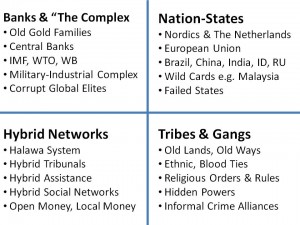| Facing prison for filming US police | |
| By Chris Arsenault | |
|
When police arrested Anthony Graber for speeding on his motorbike, the 25-year-old probably did not see himself as an advocate for police accountability in the age of new media. But Graber, a sergeant with the Maryland Air National Guard, is now facing 16 years in prison, not for dangerous driving, but for a Youtube video he posted after receiving a speeding ticket. |
FULL STORY at Al Jazeera Not in USA
Phi Beta Iota: A society with a sense of humor would establish a monthly “film the police” day. Such lunacy. When the law gets really stupid it is time to change the law, e.g. it used to be legal to abuse women and people of color.
Tip of the Hat to Steve Kirby at Facebook.





